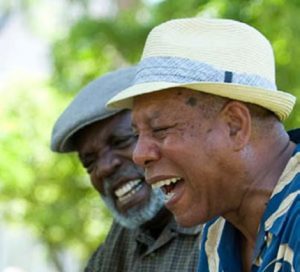March 2020, Two heads are better than one. Lopit (South Sudan) Proverb
 |
Agal hosi arik naboite. (Lopit) Vichwa viwili ni bora kuliko moja. (Swahili) Deux têtes valent mieux qu’une. (French) Two heads are better than one. (English) |
Lopit (South Sudan) Proverb
Background, Meaning and Everyday Use
The Lopit people are an ethnic group found in Eastern Equatoria State of South Sudan. They also occupy the Lafon county and north end of the Lopit Hills. The language they speak is called Lopit that is alternatively referred to as Lafiit, Lafit, Lafite, Lofit, Lopid and Loppit. This language has several dialects, namely Lolongo, Logonowati, Mura, and Iboni. Lopit people are quite unified in the way that they do things in their community, and they celebrate when they have achieved something.
The culture of the Lopit people is mainly surrounded by music and dancing with different dances for different occasions. The Lopit use this proverb especially during the preparations of hunting in the village and they believe that the community cannot be successful if people do not work together. The proverb is used during hitobok, a traditional dance performed during Ikanga, a dance that is performed to celebrate a successful harvest. The proverb is also used when teaching young boys how to hunt. They are taught to move in groups and disperse in different directions with the intentions of chasing the animals being hunted. This forces these animals to run to a central part of the forest all the hunters can surround them. Hunting becomes easier and successful.
This proverb was not originally from the Lopit culture, but was borrowed from other neighboring cultures such as that of the Lohutok. This Lopit proverb allows for inclusiveness and fairness in the success of decision making at the community level.
Biblical Parallels
Ecclesiasticus 4:9: “Two are better than one; because they have a good reward for their labor.”
Romans 15:5-6: “May the God of endurance and encouragement grant you to live in such harmony with one another, in accord with Christ Jesus, that together you may with one voice glorify the God and Father of our Lord Jesus Christ.”
Contemporary Use and Religion Application
Our modern society has evolved in a way that we have different ways of approaching issues affecting our society. One of the ways of dealing with political, social, economic and religious issues is through finding a central approach to handling these issues. In the contemporary world, religion plays an integral role in providing solutions to problems affecting the society.
This Lopit proverb brings out the ideology of the universal human values of equality, inclusiveness and fairness in which people have to work together. Created in the image and likeness of God, and endowed by nature with the capacities to reason and make free choices, human beings enjoy precisely the same essential dignity. The Christian Churches today want to know how to reach the community. Their intent is to discover the resources within their churches that can address their community’s needs, while also reaching and helping the un-churched. The potential value in personal ministry is their desire to see the community positively affected through promoting the gospel. This same potential must seek to connect different churches and communities regardless of their cultural and theological stances. This is at the heart of ecumenism in Africa. This approach relies upon the ability to work together and be treated fairly and equally.
NOTE: This is proverb No. 99 in A Collection of 100 Lopit Proverbs and Wise Sayings (South Sudan) published by Ricardo Benon in collaboration with the African Proverbs Working Group, Nairobi, Kenya.
Ricardo Benon Benjamin Chelo
Nairobi, Kenya
Cell Phone: +254 701 606 346
Email: ricardobenon1@gmail.com
Photograph provided by:
Elias Bushiri Elie
Nairobi Kenya
Cellphone: +254-735-973-276
+254 792 556 909
Email: ebushiri@gmail.com
e.bushiri@yahoo.com
